There is no major health system within your body or operation within your brain, that isn’t wonderfully enhanced by sleep when you get it, or demonstrably impaired when you don’t get enough.
Unfortunately, sleep is also not like the bank. Let’s say I deprive you of sleep for a night (eight hours) at my Center for Human Sleep Science. Then I give you all of the recovery sleep you want on a second or even third night. While you will sleep more on those nights, you will never claim back all that slumber that you lost. Indeed, you may claim back less than 50 per cent of that missing eight hours.
As a result, you will always carry that debt. In other words, you cannot accumulate a sleep debt during the week, and then hope to pay it off in full at the weekend. Try as you may, you can never get back all that you lost. Week after week, this sleep debt escalates, like compounding interest on an unpaid loan.
We should therefore think of sleep as the very best life- and health-insurance policy you could ever wish for. Thankfully, in terms of medical recommendations, it is largely painless, free, and available to pick up on repeat prescription each night, if you choose.
Sleep is the single most effective thing we do each day to reset the health of our brain and body. It’s an extraordinary elixir that can help you age well and live longer. Here’s what we know about Mother Nature’s cure-all.
What happens if you have too little sleep?
Short sleep is associated with an increased chance of having high blood pressure, a heart attack, and/or a stroke. Even the loss of a single hour of sleep can be heartbreaking, quite literally.
There is a global experiment conducted on over 1.5 billion people across 70 countries twice a year. You know of this experiment. It is called Daylight Saving Time. According to a study published in 2014 in the journal Open Heart that looked at more than 42,000 hospital admissions for heart attacks, in the spring, when we lose an hour of sleep, there is a 24 per cent increase in heart attacks the next day.
Even your hormones take a turn for the worse when sleep is lost. Young healthy men sleeping just four hours a night for four nights end up with a level of testosterone equivalent to that of someone 10 years older, according to a small study published in the journal JAMA in 2011.
In other words, inadequate sleep, even for a few nights, will ‘age’ a man by over a decade in terms of such hormonal virility. We see equivalent impairments in female reproductive health and hormonal profiles due to a lack of sleep.
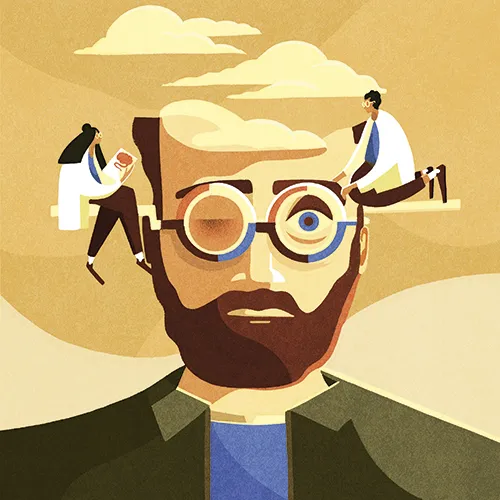
There’s also an intimate relationship between your sleep health and your immune health. People who are getting less than seven hours of sleep a night are nearly three times more likely to become infected by a rhinovirus, or common cold.
If you are not getting sufficient sleep in the week before getting your annual flu shot, you may produce less than 50 per cent of the required antibody response, rendering the vaccination far less effective. We and others are actively studying whether similar relationships hold for COVID-19.
A lack of sleep significantly increases anxiety, and is associated with higher rates of depression. Recently, studies have shown that insufficient sleep markedly increases the chance of suicidal thoughts, suicide planning, and tragically, suicide completion.
In contrast, proper sleep will gift quite remarkable health benefits in myriad ways, nurturing our memory and learning, and boosting our immunity, physical fitness and mental health.
Strangely, one upside of the pandemic situation that many (though not all) people have experienced is greater freedom with their sleep schedule. When we had to commute and get kids to school, we were forced onto an early schedule.
For the larks among us – what we call ‘morning chronotypes’ – that was fine. But for the night owls, or ‘evening chronotypes’, this was brutal. And it is not your choice which of these you are. It is largely genetic. It is not your fault, and it is imprinted during conception.
With greater bedtime freedom, we essentially saw a ‘revenge of the night owls’, as they started to sleep in harmony with their natural, 24-hour biological rhythm. I only hope this freedom remains as we begin to make our way out of the pandemic.
How much sleep do we need?
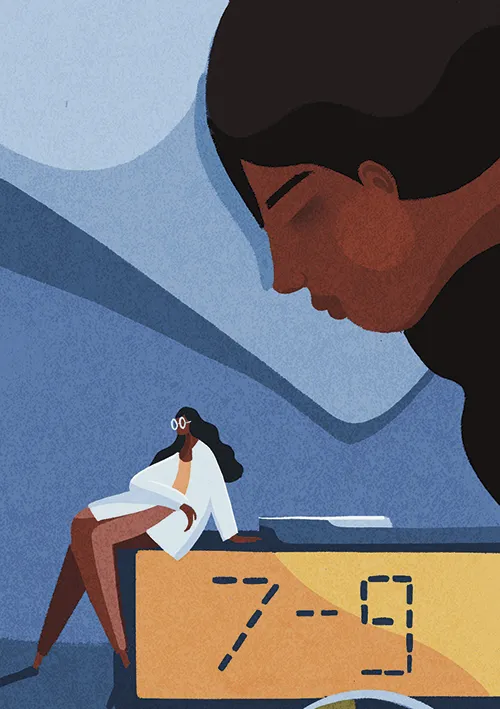
Based on the weight of tens of thousands of scientific studies, most adults should strive for somewhere between seven to nine hours of sleep each night. Indeed, respected health institutions, such as the Center for Disease Control (CDC), now stipulate a minimum of seven hours of sleep for the average adult.
Based on the wealth of evidential knowledge, such reasoning is sound. For example, consistently sleeping less than six hours is linked to numerous health conditions including certain forms of cancer, Alzheimer’s disease, diabetes, being overweight or suffering from obesity.
Read more about sleep:
Can sleep keep your brain healthy?
Insufficient sleep is fast becoming one of the most significant lifestyle factors that may influence whether you go on to develop the form of dementia we call Alzheimer’s disease. It is an area of research my team and I have been fortunate to do a lot of work in. For some years, we knew that people sleeping six hours or less each night, as well as those with sleep disorders such as insomnia and sleep apnoea, had a significantly higher likelihood of developing Alzheimer’s disease.
In patients we see with Alzheimer’s disease, there is a sticky, toxic protein that has accumulated within their brains, called beta-amyloid. Alongside another toxic protein, called tau, it is a key component of the Alzheimer’s disease cascade.
Now we know that a lack of sleep is a causal factor resulting in a greater accumulation of beta-amyloid in the brain, setting up a pathway to Alzheimer’s disease. Yet the breakthrough came when Prof Maiken Nedergaard, a neurologist at the University of Rochester in New York, revealed a stunning revelation in mice. She discovered a ‘sewage system’ in the brain that we never knew existed, called the glymphatic system (much like the lymphatic system in your body).
The brain’s glymphatic system helps remove all of the dangerous metabolic contaminants and detritus that build up in the brain as we are awake, including and critically, beta-amyloid. However, this cleansing system only kicked into high-flow gear when the mice were in deep sleep. And if you prevent a mouse from getting that essential deep sleep, there was an immediate increase in beta-amyloid deposits in the brain.
Research at my own sleep centre, and studies by other scientists, have shown that a similar vicious cycle exists in humans. Deprive someone of sleep for a night, or even just decrease the amount of deep sleep they get in the first few hours of the night, and we see an immediate increase in the buildup of beta-amyloid the next day, measured in their bloodstream, in their cerebrospinal fluid, and also directly within the brain.
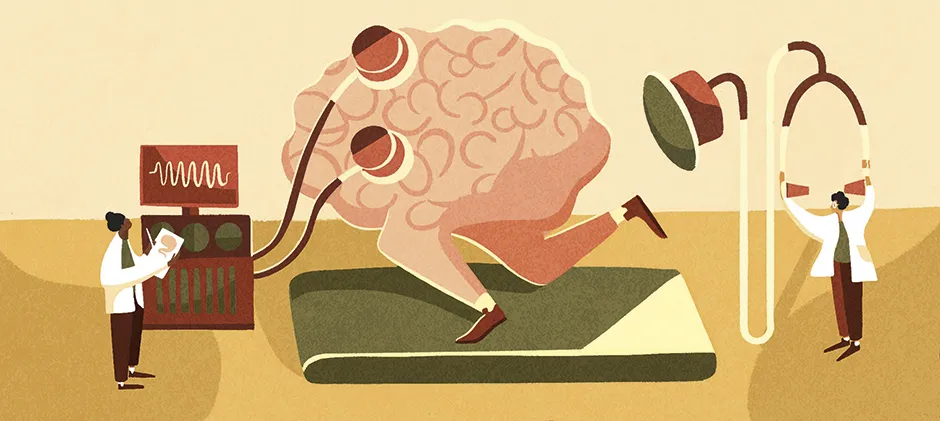
To add insult to injury, we recently discovered that the toxic beta-amyloid unfortunately builds up in the very regions that generate deep sleep, attacking and degrading them. The consequent loss of deep sleep only exaggerates your brain’s inability to remove the beta-amyloid at night. Less deep sleep, greater amyloid, less deep sleep, more amyloid.
In this regard, I am always concerned about those individuals in early and mid-life who tell me that they do just fine on four or five hours of sleep a night, since this vicious cycle can take years to play out. Unscientifically, I have always wondered about Margaret Thatcher and Ronald Reagan, both of whom were quite insistent about the uselessness of sleep, claiming only to sleep between four to five hours a night.
Sadly, and one wonders if coincidentally, both went on to develop Alzheimer’s disease. The ex-US president Donald Trump, also a vocal trumpeter of not “needing” to sleep much, may want to take note.
Prioritising your sleep in early and mid-life may help reduce the risk of Alzheimer’s, or at least slow its approach, in later life. Even if you’ve been neglecting sleep until now, it’s never too late to start. Clinical studies have shown that successfully treating middle-aged and older adults’ sleep disorders delayed their onset of dementia by up to 10 years.
Without putting too strong a point on it, consider wakefulness as low-level biochemical brain damage, and sleep as sanitary salvation. Without enough sleep, the brain is simply unable to wash away those sticky toxic proteins of beta-amyloid and tau that underlie Alzheimer’s disease.
Read more about sleep and the brain:
Is caffeine really keeping me awake?
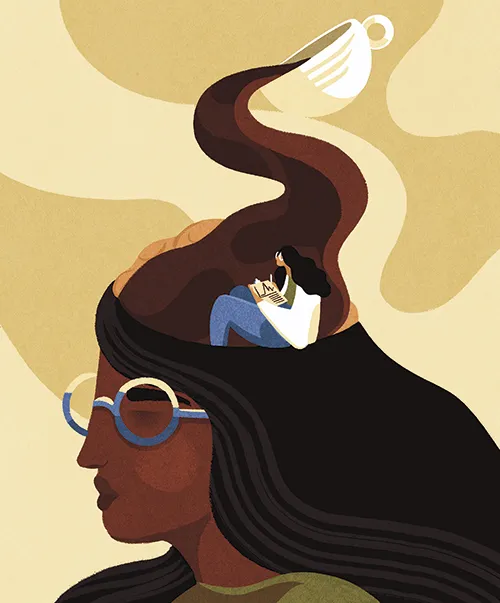
One critical factor helping you fall asleep and then stay asleep across the night involves a chemical called adenosine. Think of adenosine as a sleepiness chemical. It gradually builds up in the brain throughout the day. The longer that you are awake, the more it builds up and the sleepier you feel. When concentrations of adenosine peak after 12 to 16 hours of being awake, a strong urge for sleep takes hold of most of us.
Why am I telling you this? Because you can hit the mute button on the healthy sleep signal of adenosine with caffeine. Caffeine, a psychoactive drug, races into your brain and essentially blocks the receptors for adenosine. As a result, you lose that sleepiness signal, making sleep significantly less likely to occur, and if it does, more littered with awakenings.
Caffeine concentrations peak after about 30 minutes. The problem is that caffeine persists, and for a long time. In medicine, we use the term ‘half-life’ when discussing a drug’s impact. ‘Half-life’ means the amount of time it takes for your body to essentially clear away 50 per cent of the drug dose.
For most individuals, caffeine has a half-life of five to six hours. It therefore has a quarter-life of between 10 to 12 hours. So, if you have a cup of coffee at 2pm in the afternoon, 25 per cent of that caffeine can still be swirling around your brain at midnight. A coffee at 2pm would be the equivalent of tucking yourself into bed at midnight, but just before you do, you gulp down a quarter of a cup of hot coffee and hope for a good night’s sleep. Which is unlikely to happen.
Please don’t get me wrong. I’m not against caffeine. Indeed, coffee has been associated with numerous health benefits, though this is likely due to the powerful antioxidants within the coffee bean, not the caffeine itself. But as with many things, when it comes to caffeine, the dosage (and timing), make the poison. Limiting to one to three cups each day, and stopping that caffeine consumption by noon for most people will see you right in protecting your sleep.
Read more about caffeine:
- In praise of caffeine, the world’s most widely consumed psychoactive drug
- How long does caffeine take to kick in?
- Is caffeine good for you?
Why do we dream?
Dreaming is not simply a by-product of the sleep stage from which it emerges, called REM sleep. Instead, REM-sleep dreaming serves important benefits. Recent work in my neuroscience lab, and work of other scientists, has shown that dreams serve at least two key functions.
First is emotional first aid. It’s said that time heals all wounds, but our research suggests that instead, it is time spent in dream sleep that provides emotional convalescence. Specifically, REM-sleep dreaming provides a form of overnight therapy.
Dreaming is the only time when our brain is completely devoid of the stress-related molecule called noradrenaline (the sister chemical of adrenaline). At the same time, key emotional- and memory-related structures of the brain are reactivated during REM sleep as we dream. During the act of dreaming, we are therefore able to reactivate emotional memories in a brain that’s free of this key stress chemical. As a result, we get the chance to re-process upsetting memories in a safer, calmer environment.
To demonstrate this, we recently took a group of healthy adults and divided them into two groups. Both groups watched a series of emotion-inducing images inside an MRI scanner and we took snapshots of their brain activity. Twelve hours later, they came back and were shown the same emotional pictures. However, for half the participants, the 12-hour delay occurred across the same day. For the other half, that 12-hour delay took place across the night, and therefore included a full eight hours of sleep.

Those who slept between the two sessions rated the images as far less emotional the next day. This was backed up by their MRI scans, with the emotional brain centres that create painful feelings showing a significant reduction in reactivity the following day. The reason was due to a re-engagement of the more rational frontal cortex of the brain, helping dampen down these deep emotional centres. In contrast, those who remained awake across the day showed no such calming of emotional feelings or associated brain activity.
Without sleep, we therefore have too much emotional accelerator pedal, and too little emotional brake.
In the study, we also measured the sleep of the participants during that intervening night. The more time that participants spent in dream sleep, the greater the success of overnight therapy. In other words, dreaming acts like a nocturnal soothing balm, taking the sharp edges off difficult and painful experiences. As the late entrepreneur Eli Joseph Cossman delightfully noted, “the best bridge between despair and hope is a good night’s sleep”.
The second benefit of REM dreaming is creativity. Consider my fellow Liverpudlian, Paul McCartney. His hit songs Yesterday and Let It Be both came to him by way of REM-inspired creativity.
Not to be outdone, the iconic opening guitar riff from the Rolling Stones’ bestseller Satisfaction was also gifted to lead guitarist Keith Richards when he was asleep. We can even turn to profound scientific discoveries like the construction of the periodic table, which came to Dmitri Mendeleev during a dream.
Experiments in the laboratory have now proven such sleep-dependent creativity, resulting in innovative problem-solving abilities. Although deep non-REM sleep strengthens individual memories, it is REM sleep and dreaming when those memories can be fused and blended together in abstract and highly novel ways.
A good example of this comes from a delightful study published in the journal Current Biology a few years ago. Participants gradually learned to navigate a virtual maze, helped by the placement of particular objects at key places in the maze, such as a piano or a lampshade.
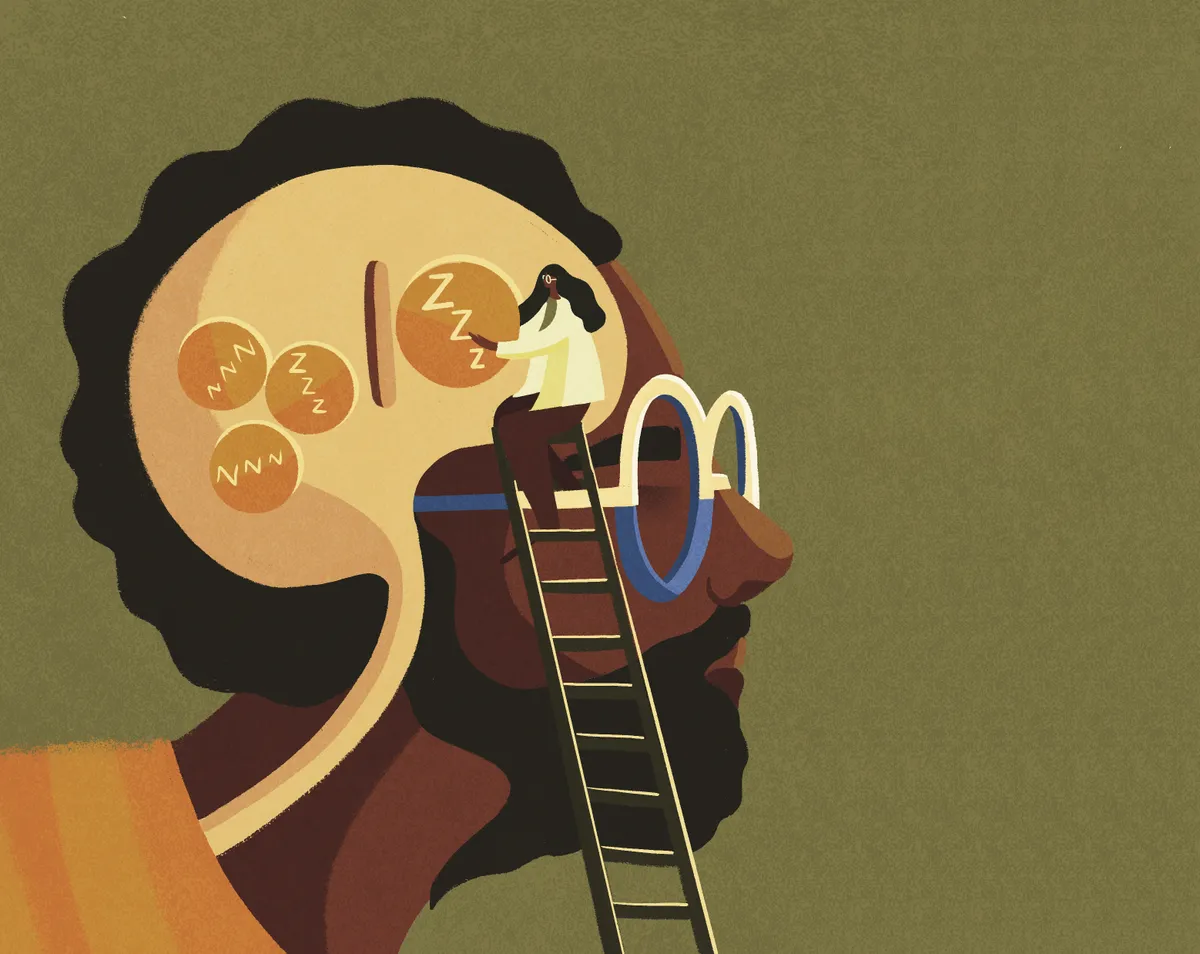
After the learning session, the participants were assigned to two groups. One group took a 90-minute nap, the other group watched television for 90 minutes. During the nap, the researchers occasionally woke the subjects up and asked about the content of their dreams. Those watching television were also asked about thoughts going through their minds. Afterwards, the participants again tried to solve the maze.
Those who got the chance to nap were far better at navigating and solving the maze than those who stayed awake. But there was a twist. Those who slept but also reported dreaming about the maze were 10 times better at the task than those who slept but didn’t dream about the maze!
How does sleep do this? We now know that during the dreaming state, your brain interconnects vast swathes of acquired knowledge. Dreaming then extracts overarching rules and commonalities. You wake up the next day with a revised mind-wide-web of associations, allowing you to establish solutions to previously impenetrable problems. Dreaming is a form of informational alchemy.
Read more about dreams:
- How does time change when we dream?
- Why do I have more vivid dreams when sleeping in a bed other than my own?
- Does dreaming affect the quality of our sleep?
Can sleep keep you slim?
Have you noticed a desire to eat more when your sleep becomes short? We know the reasons why. Inadequate sleep suppresses a hormone that signals food satisfaction, yet increases concentrations of the hormone ghrelin that makes you feel hungry. In spite of having eaten enough and being full, you will still want more. It is a proven recipe for weight gain in adults and children.
It’s not just about hormonal changes in your body. Your brain’s response to food changes when you are sleep deprived. Several years ago, my team and I scanned the brains of otherwise normal-weight individuals as they were choosing which items they wished to eat from a range of unhealthy and healthy foods.
We had these participants do this twice: once after a full night of sleep, and once after being sleep-deprived for a night. The brain scans demonstrated that regions in the prefrontal cortex that sit just above your eyes, and are required for controlled decisions, had been switched off by a lack of sleep. These impulse-control regions normally keep our food desires in check.
In contrast, a more primal deep-brain structure, the amygdala, which drives hedonic motivations including decadent food desires, was amplified. Indeed, when sleep-deprived, participants chose foods that contained over 600 calories more than foods that these same individuals selected when properly rested.
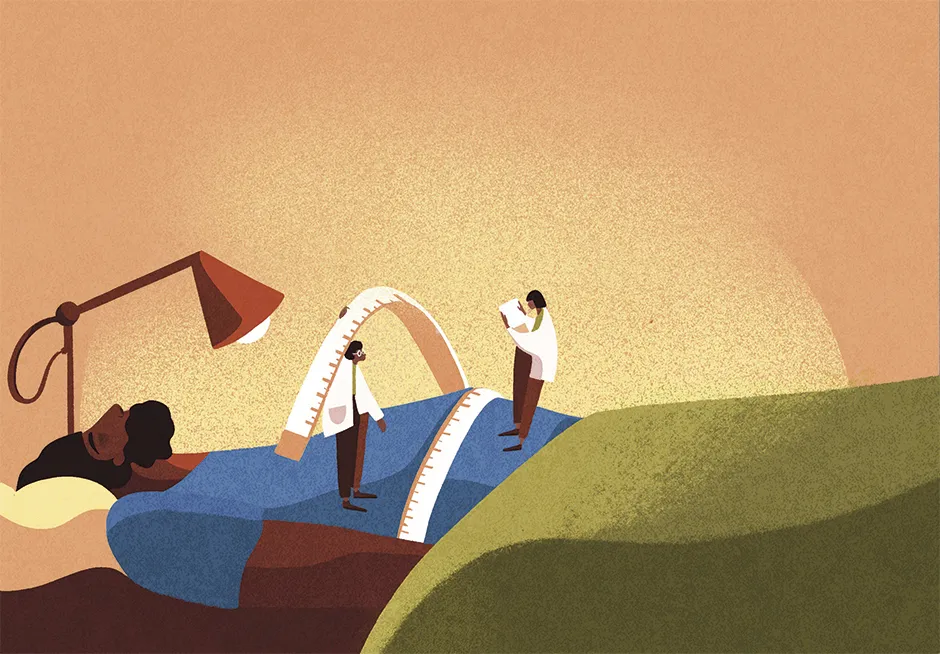
You can now see why a person’s waistline will suffer if sleep becomes consistently short, as they may be reaching for pizza or doughnuts, rather than wholegrains or leafy greens.
Worse still, if you are attempting to diet, and you don’t get enough sleep while doing so, it all becomes largely futile. Up to 60 per cent of the weight you lose will come from lean muscle mass, according to a small study carried out in 2010. When you are not sleeping enough, your body becomes stingy in giving up its fat stores and becomes more than willing to give away muscle. As a result, you keep what you want to lose (fat), and lose what you want to keep (muscle).
Tally all this up, and it has become increasingly clear that the silent sleep-loss epidemic may be a key contributor to the obesity epidemic afflicting so many societies, alongside the proliferation of processed foods, larger serving sizes and increased rates of sedentary behaviour. We are even observing these effects early in life. A 2005 study published in the BMJ found that three-year-olds sleeping just 10.5 hours or less have a 45 per cent increased risk of being obese by age seven than those who get 12 hours of sleep a night.
On a more positive note, each of us has the choice to turn the tables on all this research by cultivating better sleep habits. Prioritising sleep is one of the most powerful ways to regain control of our weight, and our waistline.
- This article first appeared inissue 363ofBBC Science Focus Magazine–find out how to subscribe here